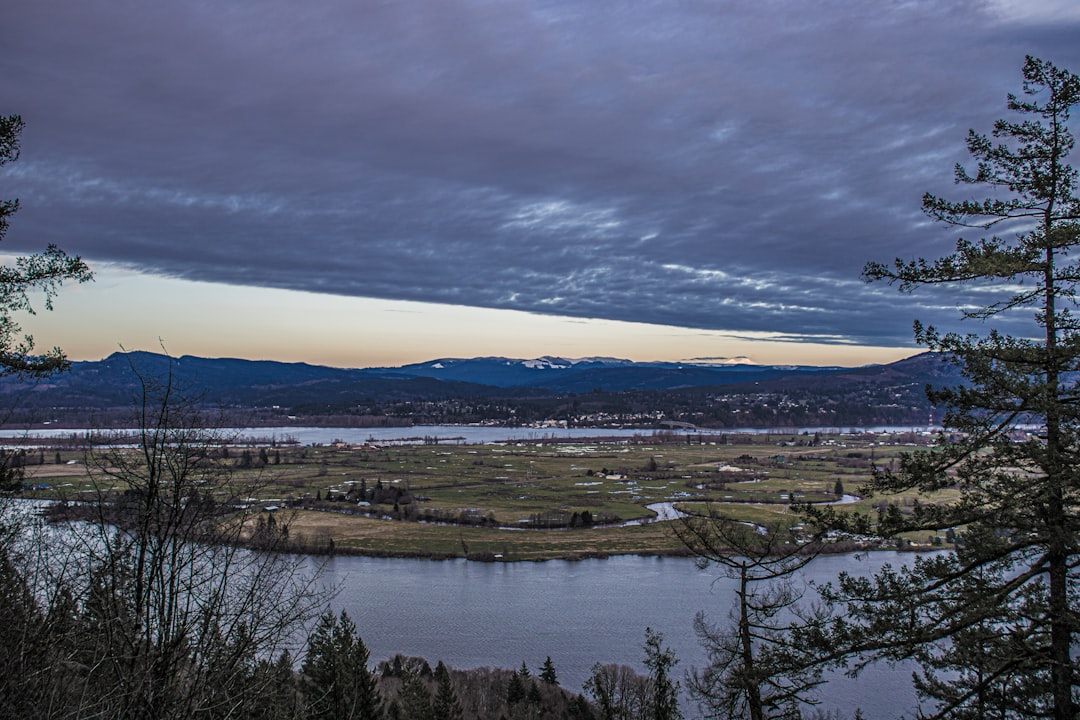

Owning rural land offers a variety of benefits that can significantly enhance one's quality of life and financial portfolio. These advantages range from personal enrichment to economic gains, making rural land an appealing investment for a diverse group of people.
First and foremost, the tranquility and natural beauty that come with rural land ownership are unparalleled. Far removed from the hustle and bustle of urban environments, rural areas provide a peaceful retreat where one can relax and unwind. The fresh air, open spaces, and stunning landscapes contribute to overall well-being, offering a sanctuary for those seeking respite from the stresses of city life.
In addition to the mental health benefits, owning rural land allows for a closer connection to nature. This connection can be profoundly gratifying; whether through farming, gardening, or simply exploring the great outdoors, there is something deeply satisfying about nurturing the land and witnessing its growth and transformation over time. This bond with nature often leads to a more sustainable lifestyle as individuals become more conscious of their environmental impact.
Financially speaking, rural land can be a sound investment. As urban areas continue to expand, rural properties often appreciate in value due to their increasing scarcity. Furthermore, owning such land opens up various revenue-generating opportunities. For instance, agricultural activities like crop cultivation or livestock farming can provide steady income streams. Additionally, leasing portions of the land for activities such as hunting or fishing can also be lucrative.
Another key advantage is the potential for self-sufficiency that comes with owning rural property. With enough space available, one can grow their own food or even generate renewable energy through solar panels or wind turbines. This not only reduces living expenses but also aligns with global movements toward sustainability and self-reliance.
Rural lands are also typically subject to fewer regulations compared to urban counterparts. This means greater freedom in how one uses their property-whether it's building a custom home without stringent zoning laws or engaging in agricultural practices without excessive bureaucratic oversight.
Community ties tend to be stronger in rural areas as well. Smaller populations foster close-knit communities where neighbors know each other by name and lend support in times of need. This sense of belonging contributes significantly to emotional well-being and provides an invaluable social safety net.
Lastly, there is an intrinsic value in preserving open spaces and natural habitats on one's own terms rather than seeing them succumb to unchecked development pressures. By owning rural land, individuals have the power to conserve these precious ecosystems for future generations while enjoying them today.
In conclusion, the benefits of owning rural land are manifold-ranging from personal satisfaction derived from connecting with nature to practical financial advantages and increased autonomy over one's lifestyle choices. Whether you seek peace and quiet or new investment opportunities, purchasing rural property offers numerous rewards that make it a worthwhile endeavor.
Purchasing rural land can be an enticing venture, presenting opportunities for recreational use, agricultural enterprises, or even a serene retreat from urban life. However, the allure of open spaces and picturesque landscapes should not overshadow the critical considerations that need to be addressed before making such a significant investment. Below are some key considerations that one should carefully evaluate before purchasing rural land.
First and foremost, understanding the zoning laws and land-use regulations is imperative. Zoning laws dictate what activities can legally take place on your land. Whether you envision farming, building a residence, or starting a business, these regulations will determine if your aspirations are feasible. Contacting local planning departments can provide clarity on permissible uses and any potential restrictions.
Access to utilities is another crucial factor. Unlike urban areas where access to water, electricity, and sewage systems is often taken for granted, rural lands may lack these essential services. Investigating the availability and cost of installing utilities can prevent future logistical and financial headaches. In some cases, drilling wells or installing septic systems may be necessary-expenses that should be factored into your budget from the outset.
Environmental factors cannot be overlooked either. Conducting soil tests will reveal its suitability for agriculture or construction projects. Additionally, awareness of any flood zones or natural hazards like wildfires or earthquakes in the area is vital for safeguarding both your property and investment.
The topography of the land also plays an important role in determining its utility. Flat terrains might be more suitable for farming but could face flooding risks whereas hilly terrains might offer scenic views but pose challenges for construction and access roads.
Accessibility should not be underestimated as well. The distance to major roads or highways affects not only convenience but also the potential resale value of your property. Remote locations may offer tranquility but could complicate commuting needs or emergency services' access.
Another layer of complexity involves understanding property boundaries clearly through a professional surveyor's report to avoid disputes with neighboring properties later on.
Financial considerations extend beyond just the purchase price; taxes associated with rural properties may differ significantly from those in urban settings due to varying tax rates and potential agricultural exemptions. Consulting with a financial advisor familiar with local tax laws can provide valuable insights into long-term fiscal responsibilities.
Legal aspects must also be meticulously examined by reviewing titles for any encumbrances such as liens or easements that could affect your ownership rights or usage plans adversely.
Lastly, community dynamics can't be ignored when buying rural land intending residential purposes; integrating into a close-knit community requires understanding local culture which could impact your lifestyle significantly over time positively enhancing quality living experience if aligned harmoniously otherwise resulting in social isolation if neglected initially during assessment phase pre-purchase decision-making process itself thereby necessitating careful consideration regarding this aspect too especially when relocating permanently seeking peaceful countryside living amidst nature away bustling city life's hustle-bustle thus achieving ultimate dream goal envisioned prior embarking upon journey acquiring idyllic rural haven transforming vision reality successfully fulfilling cherished aspirations lifelong contentment satisfaction joyfully!
In conclusion then anyone considering buying rural lands must undertake comprehensive research covering diverse facets thoroughly ensuring informed decisions aligning personal goals practical realities thereby maximizing benefits while minimizing risks associated investing inherently dynamic complex domain real estate sector particularly concerning unique characteristics challenges opportunities presented specifically within context acquiring managing developing maintaining optimizing value derived owning beautiful piece countryside paradise!
Investing in land can be a highly rewarding venture, offering both financial security and potential for substantial returns.. However, like any investment, purchasing land requires careful planning, research, and strategic thinking.

Posted by on 2024-09-18
Buying land in rural areas can be a dream come true for many, offering a serene escape from the hustle and bustle of city life.. However, this process is not as simple as it might seem.

Posted by on 2024-09-18
The decision to invest in property represents a significant milestone in many people’s lives, and this often leads to the contemplation of whether to buy land or a house.. Each option offers distinct advantages and disadvantages, shaped by differing financial, lifestyle, and long-term investment considerations.

Posted by on 2024-09-18
Purchasing rural land is an endeavor that can yield significant benefits, whether for agricultural purposes, investment opportunities, or personal retreats. However, it is crucial to understand the legal aspects and regulations that govern such transactions to ensure a smooth and lawful process. This essay delves into some of the key legal considerations and regulatory frameworks involved in purchasing rural land.
First and foremost, zoning laws are fundamental when considering a rural land purchase. Zoning regulations dictate how a piece of land can be used-whether for residential, agricultural, commercial, or industrial purposes. Violating these zoning restrictions can lead to severe penalties and may even necessitate altering or ceasing intended activities on the property. Additionally, certain lands may have specific designations such as conservation areas or protected wetlands which impose further limitations.
Another critical aspect is the due diligence process. Potential buyers should conduct thorough investigations into the history of the land title to ensure there are no existing encumbrances like liens or easements that could affect their ownership rights. Title insurance can provide additional protection against unforeseen claims.
Environmental regulations also play a vital role in rural land purchases. Federal and state environmental laws aim to protect natural resources and may impose restrictions on land use to preserve wildlife habitats or water quality. Compliance with these regulations often requires environmental assessments or impact studies before any development can proceed.
Water rights represent another layer of complexity unique to rural properties. In many regions, water rights are not automatically included with land ownership and must be separately acquired or leased. Understanding local water laws is essential for anyone planning agricultural activities that require substantial water usage.
Furthermore, financing options for rural properties can differ significantly from urban real estate transactions. Traditional mortgage lenders may have stricter requirements for lending on rural lands due to factors like appraisal difficulties and perceived market volatility. Specialized loans designed for agricultural properties might be available through government programs but often come with their own set of eligibility criteria and conditions.
Lastly, potential purchasers should be aware of any local ordinances that might impact their use of the property. For instance, some municipalities have rules governing noise levels, waste disposal methods, and even aesthetic aspects like fencing and building styles.
In summary, purchasing rural land involves navigating a labyrinth of legal aspects and regulations designed to protect both public interests and individual property rights. Prospective buyers must engage in meticulous research and possibly seek professional guidance from real estate attorneys or consultants specializing in rural properties to ensure compliance with all relevant laws and regulations. By doing so, they safeguard their investment while contributing responsibly to sustainable land use practices.

Purchasing rural property is a dream for many seeking tranquility, space, and a closer connection to nature. However, financing such a purchase can be complex, given the unique challenges and opportunities presented by rural real estate. Unlike urban properties, rural land often lacks comparable sales data, infrastructure, and can be subject to different zoning laws. Therefore, understanding the various financing options available is crucial for prospective buyers.
One of the primary ways to finance rural property is through traditional bank loans. Banks offer a range of mortgage products that can be tailored to the specific needs of buying land outside urban areas. Conventional mortgages are viable if you plan to build a home on the land or if there are existing structures considered valuable by lenders. However, these loans often come with stringent requirements including higher down payments and more rigorous credit checks due to the perceived risk associated with rural properties.
For those who do not qualify for traditional bank loans or need more flexible terms, government-backed loans can be an attractive alternative. The United States Department of Agriculture (USDA) offers several loan programs designed specifically for rural properties. The USDA Rural Development Guaranteed Housing Loan Program provides low-interest rates and requires no down payment for eligible buyers purchasing in designated rural areas. Additionally, the USDA Farm Service Agency (FSA) offers loans aimed at helping farmers buy agricultural land or expand their operations.
Another option worth considering is owner financing. This arrangement involves negotiating directly with the property seller rather than through conventional lenders. Owner financing can provide greater flexibility in terms of down payments and interest rates but typically requires detailed agreements to protect both parties' interests. This method can be particularly useful when dealing with smaller parcels of land or properties that might not meet standard lending criteria.
For those looking at significant acreage or unique types of rural property such as timberland or recreational tracts, specialized lenders may offer more suitable financial products. These institutions understand the nuances of rural real estate better than conventional banks and can structure loans that address specific needs like longer repayment terms or seasonal income variations common in agricultural settings.
Crowdfunding platforms have also emerged as innovative avenues for financing rural land purchases. These platforms allow multiple investors to pool their resources together to fund a single project. While less traditional than other methods, crowdfunding can provide access to capital without relying on conventional creditworthiness standards.
Lastly, personal savings remain one of the simplest yet most powerful tools for purchasing rural property outright or making substantial down payments that reduce overall borrowing costs. Building up savings might take time but offers unmatched freedom from debt obligations and interest charges over the long term.
In conclusion, buying rural property presents unique financial challenges but also diverse opportunities through various financing options-ranging from traditional bank loans and government-backed programs to owner financing and innovative crowdfunding solutions. Prospective buyers should carefully evaluate each option's advantages and limitations in relation to their specific goals and financial circumstances before making an informed decision on how best to proceed with their dream of owning rural land.
When it comes to purchasing rural land, finding the right property can be a thrilling yet daunting task. Whether you're dreaming of a serene countryside retreat, planning to start an agricultural venture, or simply seeking an investment opportunity, the process demands careful consideration and strategic planning. Here are some essential tips to guide you through the journey of finding your ideal rural property.
First and foremost, it's crucial to define your goals. Are you looking for a place to build a home, farmland for crops or livestock, or perhaps a recreational getaway? Clarifying your intentions will help narrow down your search and ensure that the property aligns with your needs. For instance, if agriculture is in your plans, you'll need land with fertile soil and access to water resources.
Next, consider the location. Rural properties are often remote, so it's important to evaluate proximity to essential services such as hospitals, schools, and grocery stores. Additionally, take into account the accessibility of the property: well-maintained roads and transportation links can make life more convenient and increase the value of your investment.
Another key factor is the quality of the land itself. Conduct thorough research on soil types and topography to determine suitability for your intended use. If farming is on your agenda, enlist experts to assess soil health and drainage capabilities. For those interested in forestry or conservation projects, understanding local ecosystems and biodiversity will be vital.
Water availability cannot be overlooked when purchasing rural land. Investigate sources of water such as rivers, lakes, wells, or municipal connections. Verify water rights and ensure there are no legal restrictions that could impede usage. A reliable water supply is critical not only for agricultural purposes but also for daily living needs.
Legal considerations play a significant role in rural land purchases. Engage with a knowledgeable real estate attorney who specializes in rural transactions to navigate zoning laws, easements, and any potential disputes over property boundaries or access rights. Understanding these aspects can prevent future complications and protect your investment.
It's also wise to check development potential and restrictions associated with the property. Some areas may have strict regulations about building structures or altering landscapes due to environmental protections or historical significance. Make sure that any future plans you have are permissible under local ordinances.
Financial aspects should not be underestimated either. Beyond the purchase price of the land itself, factor in costs related to infrastructure development such as building roads, installing utilities (electricity, gas), fencing for livestock if needed, and other improvements necessary for making the land livable or functional according to your purpose.
Lastly but importantly is conducting an on-site visit before finalizing any decisions; pictures online might be appealing but they do not always present reality accurately enough! Walking through prospective lands gives better insight into what truly lies ahead including possible hidden gems like picturesque views which could add immense value both personally & financially later down line!
In conclusion: buying rural properties involves more than just finding aesthetically pleasing plots; it's about aligning personal/financial aspirations within realistic frameworks backed by diligent research & professional advice ensuring smooth transitions towards fulfilling dreams amidst nature's embrace!
Purchasing rural land can be an exciting and rewarding venture, whether you're looking to start a farm, build a countryside retreat, or invest in real estate. However, the process is not without its complexities. One of the most critical stages in this endeavor is the due diligence and inspection process. This stage ensures that you are making an informed decision and minimizing potential risks associated with rural land ownership.
Due diligence refers to the comprehensive appraisal of a property to confirm all details and identify any potential problems before finalizing the purchase. In the context of rural land, due diligence involves several key components: legal considerations, environmental assessments, infrastructure evaluation, and financial analysis.
Firstly, legal considerations are paramount. You must verify the property's title to ensure it is free from liens or disputes. Engaging a qualified real estate attorney can be invaluable at this stage. They will review deeds, easements, zoning laws, and any covenants that may affect your intended use of the land. For example, some rural areas have strict agricultural zoning laws that could limit non-agricultural development.
Environmental assessments are another crucial aspect of due diligence for rural properties. Unlike urban plots where contamination issues might be more evident or regulated, rural lands can harbor hidden environmental risks such as soil contamination from previous agricultural practices or illegal dumping sites. Hiring an environmental consultant to conduct Phase I Environmental Site Assessments (ESAs) can reveal these hidden dangers.
Infrastructure evaluation focuses on determining whether existing facilities meet your needs or if additional investments are necessary. This includes assessing road access, water supply (both quality and availability), septic systems, electricity access, and internet connectivity-services that are often taken for granted in urban settings but may require significant upgrades in rural areas.
Financial analysis should not be overlooked either. Beyond the purchase price, consider ongoing costs such as property taxes, insurance premiums tailored for rural properties (which might differ from those in urban areas), maintenance costs for roads or fences, and any necessary improvements based on your initial inspections.
The inspection process runs parallel to due diligence but has its own set of specific tasks aimed at evaluating the physical condition of the property. A professional surveyor will confirm boundary lines to avoid future disputes with neighbors-a surprisingly common issue in expansive rural tracts where markers may not be obvious.
Agricultural experts can evaluate soil quality if farming is part of your plan while structural engineers assess buildings on site for integrity and safety compliance. Inspecting natural features like water bodies or forested areas also falls under this purview; they could provide benefits like irrigation potential or timber resources but also pose challenges such as flood risk or wildfire hazards.
Both due diligence and inspection processes demand meticulous attention to detail but serve different purposes-one focuses on uncovering legal complexities and ensuring compliance while the other assesses tangible aspects directly influencing usability and investment value.
In conclusion, thorough due diligence coupled with a comprehensive inspection process lays a solid foundation for any successful rural land purchase. It safeguards you against unexpected hurdles down the line by providing critical insights into both visible attributes and concealed intricacies of your prospective property-ultimately empowering you to make well-informed decisions aligned with your long-term goals.
Closing the Deal and Final Steps in Rural Land Purchase
Purchasing rural land is an exciting venture that promises the allure of open spaces, potential agricultural pursuits, or simply a serene escape from urban hustle. However, like any significant investment, it requires meticulous attention to detail, especially when it comes to closing the deal and finalizing the purchase. These concluding steps are crucial in ensuring that your dream of owning rural property becomes a reality without unexpected hurdles.
The journey towards closing a rural land deal often begins with due diligence-a comprehensive assessment of the property's legal status, environmental conditions, and potential restrictions. This phase can reveal critical information such as zoning regulations, easements, or existing liens on the property. Engaging a real estate attorney who specializes in rural transactions can be invaluable during this stage. Their expertise ensures that all legal documents are scrutinized thoroughly and any red flags are addressed before proceeding further.
Once due diligence is satisfactorily completed, it's time to move towards finalizing financial arrangements. Securing financing for rural land can be more complex than urban properties due to factors like lower market comparables and unique land use scenarios. Traditional mortgage lenders may have stringent requirements or even reluctance towards financing undeveloped land. Therefore, exploring alternative financing options such as agricultural loans through government programs or local credit unions specializing in rural properties might be necessary.
Next comes the negotiation phase where both buyer and seller finalize terms of the sale agreement. This includes agreeing on the purchase price, contingencies such as soil tests or water rights verifications, and timelines for closing. It's essential to document everything meticulously in writing-verbal agreements hold little weight if disputes arise later.
With negotiations settled, setting up an escrow account marks a pivotal step towards closing. An escrow agent acts as a neutral third party who holds funds until all conditions of the sale are met satisfactorily by both parties involved. This provides security that neither side will default on their commitments unexpectedly.
Then comes one of the most critical stages-title search and insurance. Conducting an exhaustive title search ensures there are no hidden claims against your prospective property which could jeopardize your ownership rights post-purchase; issues like unresolved boundary disputes or historical claims need resolution beforehand.
Simultaneously acquiring title insurance protects you from future legal challenges over ownership disputes once you have taken possession of your new asset; it's essentially safeguarding against unknown liabilities lurking beneath surface-level inspections.
Finally reaching closing day itself signifies culmination but not conclusion-this ceremonial yet official moment involves signing numerous documents ranging from deeds transferring ownership rights legally onto buyers' names through notarization processes down detailed loan agreements if applicable depending upon chosen method funding acquisition proceedings prior discussed earlier segments outlined above overall transaction lifecycle here thus far covered comprehensively indeed!
Post-closing responsibilities shouldn't be overlooked either-they include recording deed transfers public records ensuring compliance local ordinances taxes payable immediately following change hands successfully completed endeavors thus far undertaken collectively achieving desired outcome owning cherished piece countryside heaven envisioned initially outset embarking upon journey together today!
In conclusion navigating complexities inherent within process purchasing rural lands demands diligent preparation informed decision-making throughout each sequentially interconnected phase leading ultimately successful acquisition endeavored pursuit dreams realized tangibly amidst tranquil landscapes beckoning forth new beginnings embraced wholeheartedly spirit adventure awaits beyond horizon newly acquired frontiers ahead!
Once we have all the necessary information about your property, we usually provide a fair cash offer within 24-72 hours.
No, our service is transparent with no hidden fees or commissions. You receive the full offer amount without any deductions.
You should provide details such as the size of the land, location, zoning and land use regulations, access to utilities, any improvements made, and any existing liens or encumbrances.